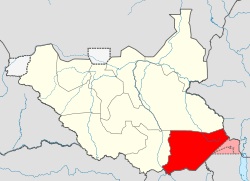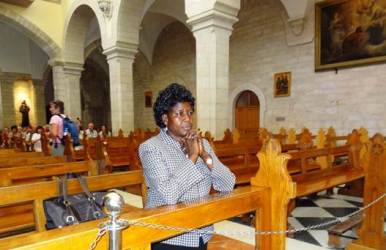E. Equatoria women warn of electoral consequences for absent MPs
By Ijoo Bosco
December 3, 2013 (TORIT) – A group of women MPs from South Sudan’s parliament were warned by a delegation of women from Eastern Equatoria that legislators that did not make the effort to visit their constituencies would face the consequences at the next election.

The women that spoke at the event, facilitated by the Association of European Parliamentarians with Africa (AWEPA), said that legislators at all levels should be addressing the needs of citizens in the areas they represent, rather than working separately and being disconnected from their constituencies.
The delegation of women, which was drawn from across the Eastern Equatoria’s eight counties, complained that many parliamentarians spend recesses in major towns and do not visit their constituencies. They warned that such negligence would have consequences at the 2015 general elections.
The coordinator of the AWEPA project, Kristien Debrel, said the main purpose of bringing the national women parliamentarians to have a dialogue with women from the areas they represent was to help citizens understand their role in the country and close the gap between MPs and the constituents.
The nine day mission to Torit and other towns was arranged to allow dialogue between the MPs and women’s groups from Eastern Equatoria’s many communities.

Ogwaro, who is a former South Sudanese Minister of Agriculture, Forestry, Cooperatives and Rural Development, said that a constituency development fund would allow MPs to address the needs of their citizens.
Lawmakers in the capital Juba have already voted to approve the policy and it has been passed into law by South Sudanese president Salva Kiir.
Ogwaro called upon MPs in Eastern Equatoria’s state legislative assembly to adopt the system as it would guarantee in law that three per cent of the state budget would be allocated as funds for constituency development.
It would also help improve trust and transparency, she said.
“The state government may request it as a separate budget from the national government in Juba, hence it will be directly channel unto them, this will help reduce the suspicions that they normally put on us in the national parliament claiming the money is going into our pocket” Achan said.
This week South Sudan was ranked 173rd most corrupt nation out of 177 countries analysed by an annual corruption perceptions index published by Transparency International.
(ST)
